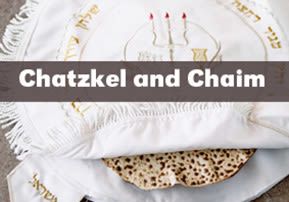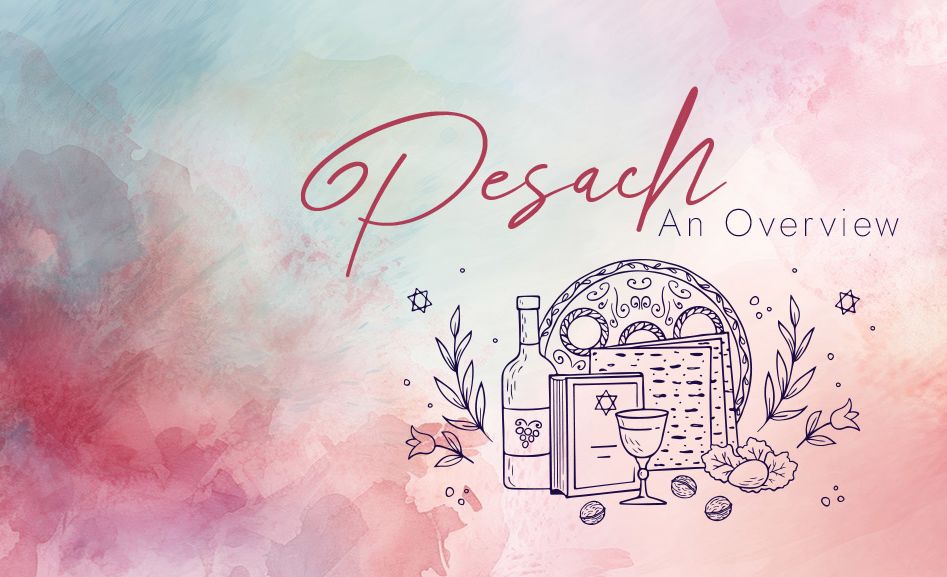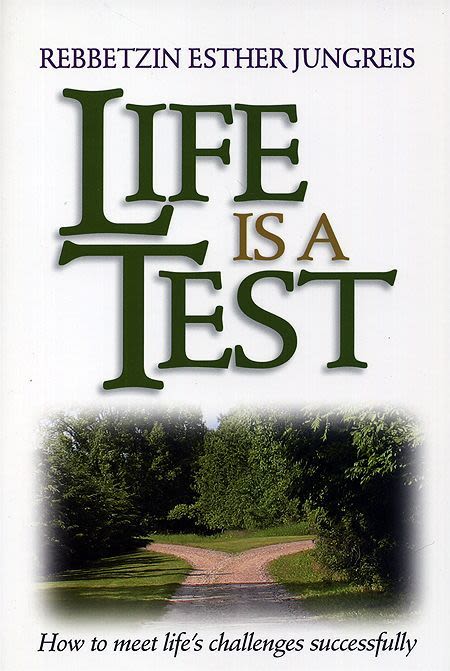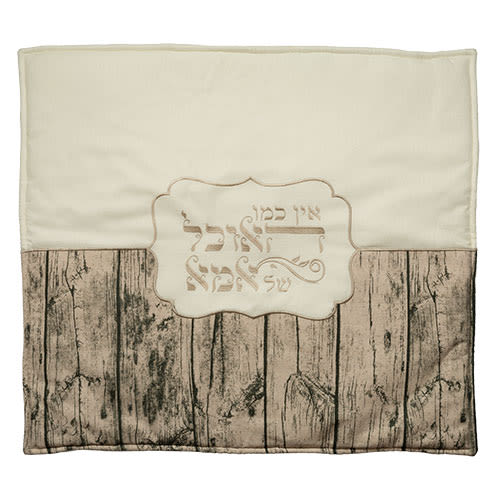
Chatzkel and Chaim
Chaim’s Seder table is oozes opulence, yet he can’t seem to relate to what’s going on. Chatzkel, with his bare necessities, is elated. What’s the difference between the two?

The night of the Pesach Seder, a little after midnight, Reb Chaim sits in the company of his family around a table laden with silverware and delicacies. His eyes are becoming heavy and making their way with great difficulty through the text. Nishmas, Hallel, Hodu La’Shem, one page after the other. He is struggling to  articulate the words of the story; they seem heavy, as if each one weighs a ton. He searches for a melody to arouse his heart but this too evades him. A sigh of distress escapes from inside him: ‘what’s happened to me, what is missing? I prepared so well and performed all the Mitzvot meticulously, nothing was missing, neither physically nor spiritually…’
articulate the words of the story; they seem heavy, as if each one weighs a ton. He searches for a melody to arouse his heart but this too evades him. A sigh of distress escapes from inside him: ‘what’s happened to me, what is missing? I prepared so well and performed all the Mitzvot meticulously, nothing was missing, neither physically nor spiritually…’
The truth is that from the very commencement of the Seder things weren’t going smoothly. The heart simply refused to take part and nothing in the story touched him in particular. He sincerely tried to do what he could, made use of insight, searched in the commentaries for an idea – something to create a connection. Yet his heart only sank even deeper – it just wasn’t interested and nothing seemed to speak to it. When nothing happened by Kiddush, Reb Chaim was sure it would come by the telling of the story and when nothing got moving there either, he placed his hope in the eating of the Matzah – surely then, at such an auspicious moment, something would happen.
When his heart refused to budge even then, Reb Chaim raised his hands in despair; until now he was somewhat patient but what the continuation of the story after Benching demanded of him, was just too much. The songs and praises appeared one after the other as if they would never end. ‘Seriously,’ he bitterly thought, ‘what do they want from me? I have no connection to all this – it doesn’t speak to me – I’m just not in the right frame of mind for this whole celebration.’
Suddenly a more logical thought entered his mind: ‘where did this whole story begin, wasn’t it by the actual exodus from Mitzrayim? The original Pesach was a result of the Jews leaving Mitzrayim. They experienced firsthand the suffering and the miraculous redemption that followed, they surely rejoiced with all their hearts. If I would have seen the ten plagues and splitting of the sea, I too would have sung the songs and praises with tremendous liveliness and passion. But NOW, what do they want from me, how can they demand of me in the middle of real life, amidst a sea of problems and troubles, to forget everything and celebrate freedom, I’m not at all there!’
Honestly, what do they want from our dear friend…?
Okay, so let’s try and tell this same story with a few minor changes:
On the outskirts of a quiet town stood a small house built of mortar sunk halfway into the ground with its roof stooping to the ground. In it lived Reb Chatzkel the wagon driver, together with his twelve sons. Reb Chatzkel’s Shabboses were as destitute as his weekdays – anything rather than to be dependent on others. Spring arrived, and with it the Chag of Pesach, but there was not too much work to be done in the house whose floors had never seen bread crumbs. Yet just as a crumb of bread was not to be found, neither was a crumb of Matzah; wine and other necessities were not even a dream. The eve of Pesach arrived and Chatzkel the simple Jew, put his faith in Hashem. Already at midday he donned his ‘Yom Tov clothes’, took his Machzor and made his way to the Beis Ha’knessess. Then, as in all good stories, out of nowhere – a horse and wagon appeared and stopped next to his house. Rugged porters emerged from the wagon carrying baskets filled to the brim with meat, fish, wine, Matzahs and more. The family members stood mesmerized with their eyes peeled wide open and when the wagon went on its way they heard the echoing call of the wagon driver: “More work to be done, hurry, sunset is on its way…”
That wondrous Pesach night, Reb Chatzkel looked like one of the great Tzaddikim. His face radiated with a heavenly light, Kiddush was made with a loud and passionate roar, with awe and trepidation, and with tremendous joy. The ancient story of the Exodus from Mitzrayim flowed from his lips with a sweetness from another world. The wine tasted as if it was from the finest of wineries and the Matzos seemed to come from the jar of Mann that was kept in the Holy Ark. During the recitation of the Hallel the whole family came close to Hispashtus Ha’Gashmiyus (Shedding of Physicality) and during Nishmas it was as if every limb took part in the praises.
Let us look closely and see what is the difference between Reb Chatzkel and Reb Chaim.
It’s very simple. The night of the Seder it supposed to take us to another world completely – to the pinnacle of emunah to which Klal Yisroel were uplifted at Yetziyas Mitzrayim, to the place where the da’as (holy awareness) is freed from the chains of nature and Chametz-like thoughts. Every Jew is obligated to see himself as if he left Mitzrayim. The problem is that it is impossible to attain this when the heart is overloaded with Chametz.
Chametz is a heavy load. It weighs down the soul and doesn’t allow it to spread its wings and ascend to clear emunah.
This is exactly the purpose of the Mitzvah of eradicating chametz. Klal Yisroel fulfills this with tremendous meticulousness and G-d forbid to suspect a Jew like Reb Chaim of making light of such an important Mitzvah. Even from the day after Tu B’Shvat his family members are toiling in eradicating Chametz. Reb Chaim puts no limit on the time and money involved – anything to make sure that his home has no trace of Chametz. Every room, shelf and corridor is checked, cleaned and scrubbed. Reb Chaim works with all his strength yet he doesn’t know that the Chametz has found its hiding place in his heart and mind.
This is how Reb Chaim sat down to his Seder, with his house clean to the extreme, but his heart clogged with Chametz. Reb Chatzkel – with his simple emunah – comes to Seder night with a heart clean of chametz. That’s the whole difference between them.
The Chametz that accumulates in the mind and heart is the most stubborn of all, being rigid and sticky. It seems as if it is impossible to get rid of it. But that’s our challenge. A happy and kosher Pesach!
* * *
Revised and translated from lessons of Rabbi Nissan Dovid Kivakby Yehoshua Jacobson
Courtesy of the Gates of Emunah Weekly Publication,
http://www.gatesofemunah.org










Tell us what you think!
Thank you for your comment!
It will be published after approval by the Editor.